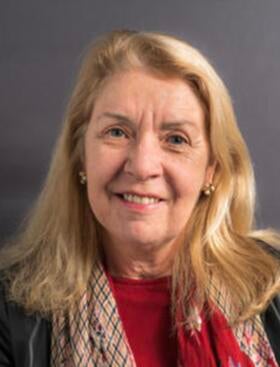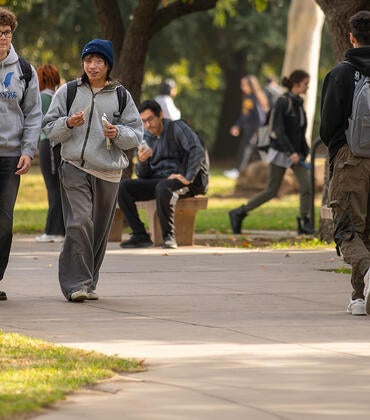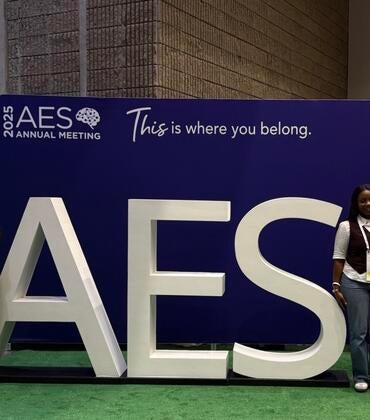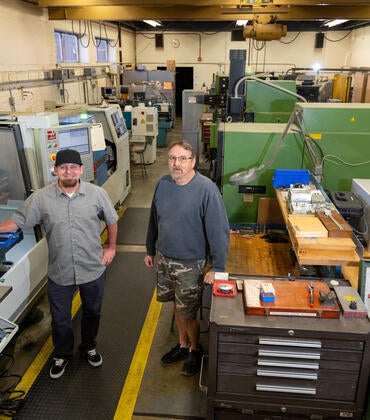On Saturday, April 15, the UCR School of Medicine and School of Public Policy joined hands to host a “COVID-19 Community Chat” on campus that addressed health disparities in COVID-19 outcomes in Riverside County.
Rodolfo Torres, UCR’s vice chancellor for research and economic development, kick-started the event with remarks in which he spelled out the impact of the pandemic on the local community.
“COVID-19 has disproportionately affected marginalized populations,” he said. “We do not know the full extent of COVID-19’s impact going forward. COVID-19 is not just a biomedical sciences problem but also a socio-economic problem.”
Instead of affecting everyone equally, the COVID-19 pandemic exposed social and economic inequities that make some populations more vulnerable to the disease than others, with marginalized and minoritized patients suffering more acutely. For example, the Hispanic/Latino population was overrepresented in the ICU population in Riverside, with hypertension and diabetes serving as predictors for increased mortality risk.
Torres’ comments were followed by those of Edward Coronado, who advises the mayor of Riverside on policy and advocacy. A UCR alumnus, Coronado pointed out the challenges the city faced after declaring and ratifying a state of emergency on March 17, 2020.
“We saw homelessness as a long-term effect of COVID-19,” said Coronado, who lost a grandparent to the disease, which is spread by the SARS-CoV-2 virus . “Food insecurity was the next community impact; lots of food pantries stopped operating. Many seniors had to go through long periods of isolation. Public engagement was impacted, too, and we had to navigate the ability to provide public comment safely. Also, how do we get people to participate in elections? How do we help people who really need it? These were our challenges.”
The community chat was organized by Meera Nair and Erica Heinrich of the School of Medicine and Richard Carpiano of the School of Public Policy.
“The mission of our medical school is to serve the underserved,” said Nair, an associate professor of biomedical sciences. Nair’s lab trains biomedical scientists and medical students to contribute to this mission by performing research aimed at uncovering health disparities and making discoveries to treat diseases that affect the community. “We want to build a diverse workforce of physicians and ensure healthcare access in our community. To serve our community, it is vital to engage with stakeholders by sharing what we are researching, how it might impact them, and importantly, receive their feedback to ensure that we are addressing questions and concerns that are important to them.”
Nair and Heinrich discussed a COVID-19 study they performed involving the participation of community members and shared their findings on disparities in COVID-19 cases across population groups. The study examined the clinical and long-term impacts of COVID-19 on health in patients residing in Riverside County and found the Latino population experienced the highest total case numbers and deaths. The study aimed also to determine the long-term effects of COVID-19 on the immune system and lung health.
Nair said the results from the study support nationwide data demonstrating a link between diabetes and hypertension and COVID-19 mortality. Severe COVID-19 is a disease of the blood vessels, she said.
“Blood vessel injury factors were increased in severe infection,” she added. “A protein in the blood, lipocalin2, is predictive of fatal outcomes. Inflammation and blood vessel damage were worse in patients with diabetes and hypertension. These markers were also linked to mortality.”
Heinrich stressed that hypertension and diabetes were very common in ICU patients. Obesity was also common in ICU patients, she said.
“Treatment has improved, however, and mortality has decreased,” she said. “In January-June 2021, 53% of ICU patients enrolled in our study survived. But in June-December 2021, 81% did.”
Heinrich also discussed long COVID, whose symptoms include breathlessness, cough, fatigue, pain, cognition problems, anxiety, depression, communication problems, and daily activity problems. She said several symptoms are commonly reported several months after recovery from COVID-19.
“The severity of these symptoms may disproportionately impact different populations,” she said. “Breathing reflexes may be changed following recovery from COVID-19, exacerbating sleep disordered breathing. It is essential to understand the diversity of long COVID symptoms that our study participants experienced and find ways to treat and support them as we continue to learn more about this condition.”
Nair and Heinrich’s talk was followed by a presentation by Dr. Patrick Merrill, an assistant clinical professor of internal medicine in the School of Medicine who took care of patients with COVID-19. His talk offered a physician’s perspective on treating the disease and discussed what was learned.
“At the start of the pandemic, there was no COVID therapy book,” he said. “A lot of patients were looking to doctors for help and hope.”
Next, Carpiano, a professor of public policy, addressed health misinformation from a public policy approach in a talk titled “COVID-19 Disparities, Vaccination, and the Challenges of Misinformation.”
“In California, there were higher case rates for communities with median incomes of less than $40,000,” he said. “Higher case rates were seen also in Pacific Islander people. Death rate was higher in Latino and African American people compared to all Californians.”
Misinformation about COVID and the vaccines resulted in disparities in vaccination coverage in Riverside County, he said. Such misinformation included statements like: the government is exaggerating the number of COVID-19 deaths; pregnant women should not get the COVID-19 vaccine; deaths due to the COVID-19 vaccine are being intentionally hidden by the government; the COVID-19 vaccines have been shown to cause infertility; you can get COVID-19 from the vaccine; the COVID-19 vaccines contain a microchip; and the COVID-19 vaccines can change your DNA.
“We need more efforts to reach specific communities, diversify the messengers, coordinate the messages and the messengers, ‘prebunk’ misinformation and disinformation, and make vaccines as accessible as possible,” he said.
He explained that prebunking is like vaccination; it immunizes the community against bad information. Disinformation is a volitional activity by bad actors intent on pushing a particular type of perspective, he said.
“Disinformation has definitely targeted the Latino and Black communities,” he added. “We now must deal with the influence of ‘influencers’ in public health, many of whom are not doctors. Policing misinformation and disinformation is a challenge.”
After lunch, attendees participated in roundtable discussions in which they had the opportunity to provide thoughts and feedback on current research. Topics for discussion were:
- Community perspective and feedback on the impact of COVID in Riverside
- Public policy perspective on the impact of COVID
- Ongoing scientific research at UCR on long COVID, and
- Physicians treating COVID in Riverside and health outcomes.

Susan Hackwood, who directs the Science to Policy initiative on campus, led the roundtable discussion on the community perspective and feedback on the impact of COVID in Riverside. She said four UCR doctoral students are currently working as fellows in the offices of congressmen Mark Takano and Raul Ruiz on issues pertaining to healthcare, childcare, and veteran benefits.
“So far we have placed 15 UCR students as Science to Policy fellows in the offices of congresspersons,” she said. “Our goal is to train STEM doctoral students to translate science to policy.”
Heinrich said she was pleased with how the event brought together physicians, public policy experts, biomedical researchers, and the local community.
“We were able to discuss how COVID-19 impacted our region, what we have learned, and where we go moving forward,” she said. “From the research perspective, we were able to directly share our findings with study volunteers, showcase the value of their participation, and gather feedback for future research questions based on our local community's needs.”
Graduate students Troy Alaama and Sarah Bobardt and undergraduate student Valeria Barrientos helped organize the event, which was funded by a grant from the UCR Office of Research and Economic Development’s Opportunity to Advance Sustainability Innovation and Social Inclusion initiative, known as OASIS.
Header image: Photo shows, from left to right, Meera Nair, Richard Carpiano, and Erica Heinrich, who organized the community chat. (UCR/I. Pittalwala)



